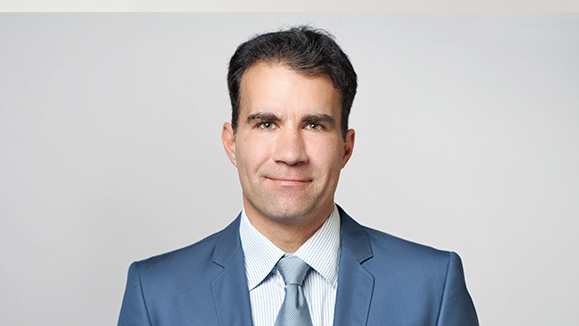Digital Economy
Digital Economy News
The digital transformation continues apace in Germany, with online market growth and cloud-based developments consolidating the country's position.
Sep 13, 2022
- Germans are Europe’s busiest online shoppers
- Germany remains Europe's biggest gaming market
- Germany to push energy efficiency through digitalization
- Data center operator Cloud HQ builds German headquarters in Offenbach
- Vodafone plans EUR 2 billion fiber optic network deal
- Manufacturing-X: SAP and manufacturing partners join forces to develop industry cloud platform
- Munich start-up raises German quantum computing hopes
Germans are Europe’s busiest online shoppers
A Europe-wide study conducted by courier express parcel delivery company DPD has found that German consumers makes the most online purchases on a monthly basis. German online shoppers have an average of 6.7 parcels delivered each month. Eighty-one percent of all online purchases are made by consumers who order online at least once a month. The “E-Shopper Barometer 2021” findings are based on the responses from a sample of almost 24,000 consumers in 21 European countries. The coronavirus pandemic has greatly altered shopping habits since 2020, with consumers increasingly buying fresh produce online (21 percent of all German online shoppers in 2021). Demand for pharmaceuticals has likewise increased.
Germany remains Europe's biggest gaming market
Germany remains Europes biggest sales market for video games according to sales figures for the first half of 2022. Approximately 15.4 million games were sold in Germany alone in the first half of the year, with the UK and France following with 14.3 million and 10.2 million sales respectively. More than 76 million games were sold in Europe in Q1/22, equivalent to a 13.5 percent annual increase. Of the games sold, 44 million were sold in digital format, with the remainder taking the form of physical retail purchases. According to games industry media reports, the market benefited from strong releases including “Elden Ring,” “FIFA 222” and “Pokémon Legends: Arceus.” Logistical bottlenecks saw a fall in console sales figures despite continued high consumer demand.
Germany to push energy efficiency through digitalization
The German government is planning a new digitalization strategy that could lead to greater energy efficiency in the electricity sector, industry and buildings according to Berlin’s Tagesspiegel newspaper. The plan would boost smart meter rollout, promote flexible energy consumption in industry and require carbon footprints for new buildings to be set prior to construction. A major part of the proposed plan would be the “de-bureaucratizing” and acceleration of smart meter rollout.
Data center operator Cloud HQ builds German headquarters in Offenbach
US-based data center operator Cloud HQ is currently building a EUR 1 billion data center complex in Offenbach. The completed construction project represents the first project for the data center specialist in the European Union. Data center capacity demand is such that the company is already planning a second data center at the Offenbach site. Around 150 new jobs will be created at the site on project completion.
Vodafone plans EUR 2 billion fiber optic network deal
British telecommunications group Vodafone wants to conclude a partnership to finance fiber-optic expansion in Germany before the end of the summer according to a report in Handelsblatt. The UK concern apparently plans to establish a joint venture for fiber-optic expansion in order to raise EUR 2 billion in equity capital from investors. According to Handelsblatt, the move is part of Vodafone’s strategy to catch up with competitors Telefónica (O2) and Deutsche Telekom who have already launched similar projects.
Manufacturing-X: SAP and manufacturing partners join forces to develop industry cloud platform
A new cloud platform designed to help the mechanical engineering industry make the supply chain transparent is being developed by SAP and industry partners according to Handelsblatt. A consortium including SAP and German mechanical engineering companies is working together to develop a cloud platform for the manufacturing sector that facilitates improved data exchange and transparency. According to the report, the consortium is looking to the Catena-X alliance model already at work in the auto industry and is currently in negotiations with the German government to secure public funding of more than EUR 105 million for the initiative.
Munich start-up raises German quantum computing hopes
Quantum computing start-up Planqc raised EUR 4.6 million venture capital in a recent financing round. Founded in April of this year, the Munich-based Max Planck Institute spin-off is seeking to develop a quantum computer based on cutting-edge German research. The company is the first spin-off from the “Munich Quantum Valley,” a network of universities, research institutes and companies seeking to bring world-leading R&D into practical industry application. Federal and state funding of EUR 380 million have been made available for this purpose from the start of the year. Planqc hopes to build on Germany’s world-leading photonics position – to build processors using atoms in articficial crystals of light – in order to take on industry giants like Google and IBM in the quantum-computing race.
